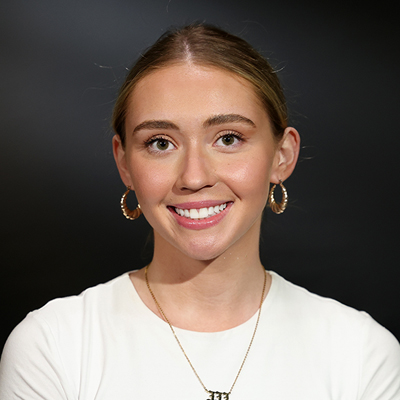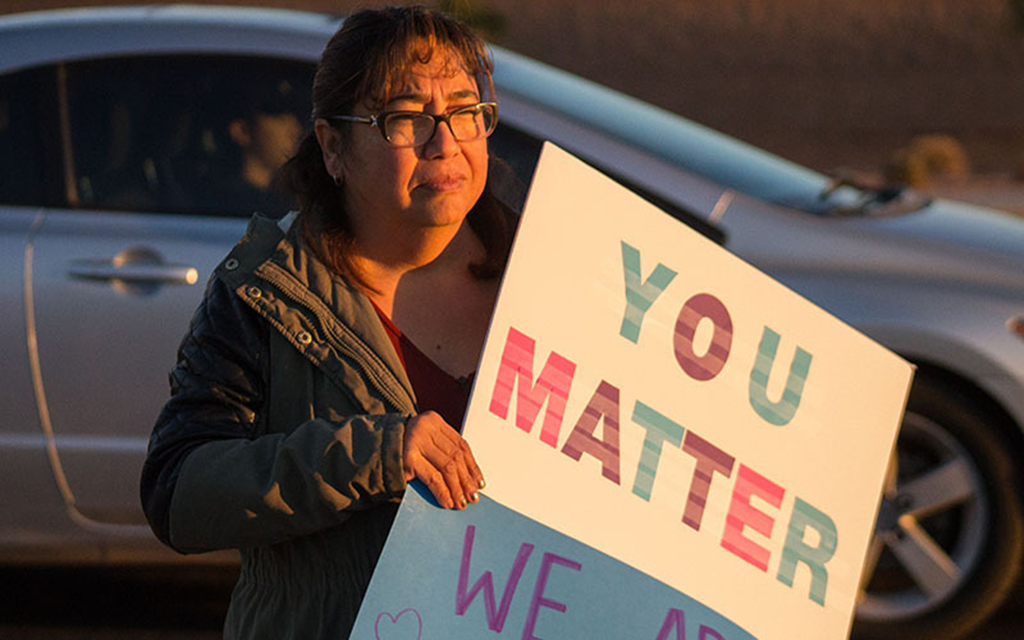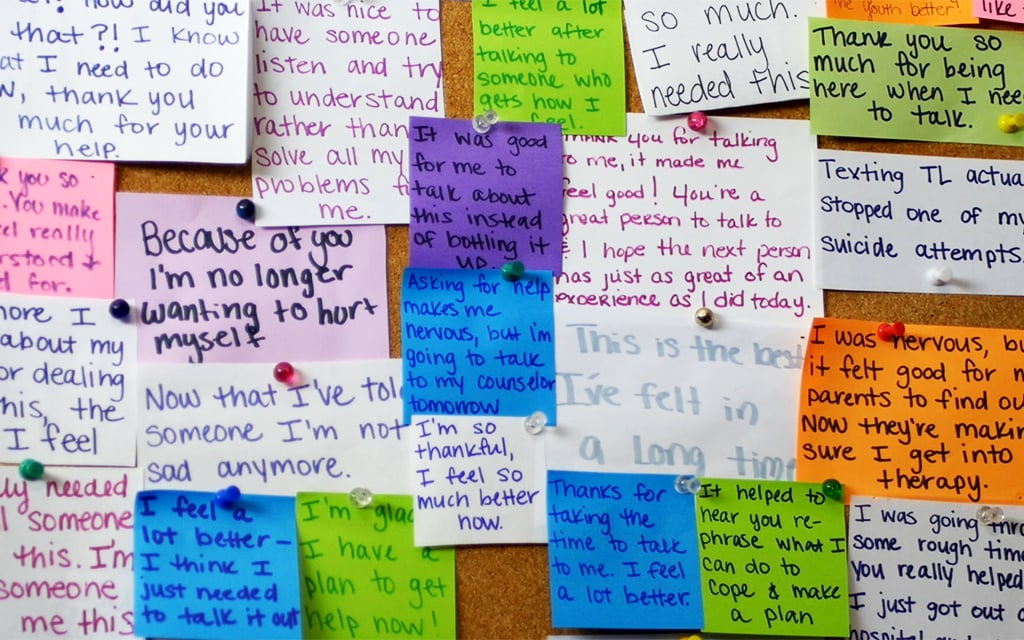
Counselors receive messages from teenagers who have called to express their gratitude. Teen Lifeline keeps the messages and hangs them in their hotline room. (Photo courtesy of Teen Lifeline)
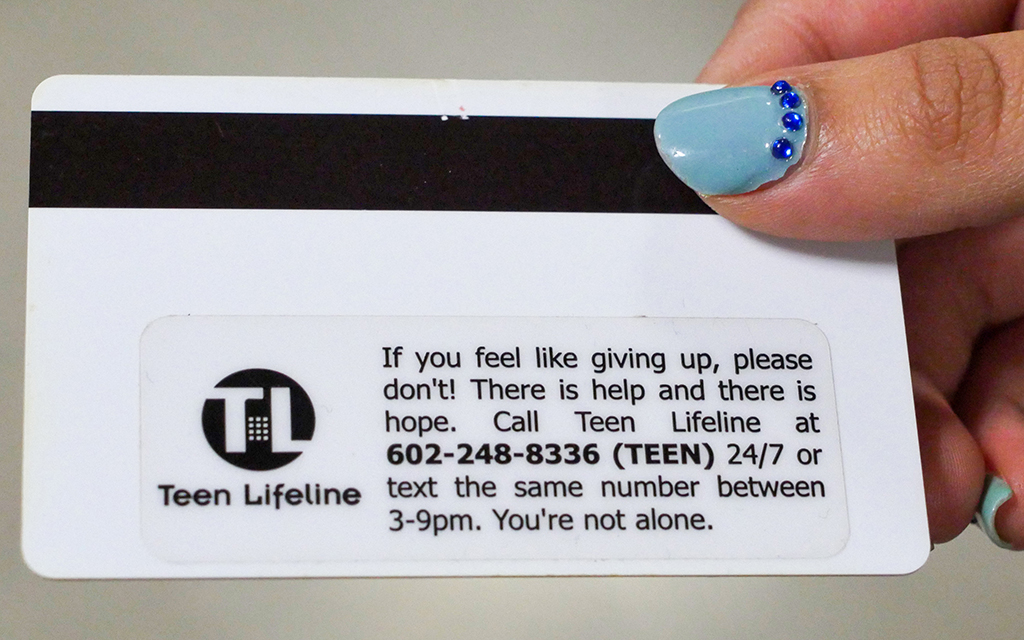
Student school ID cards in Arizona list Teen Lifeline’s phone number. The number is reachable 24/7. (Photo courtesy of Teen Lifeline)
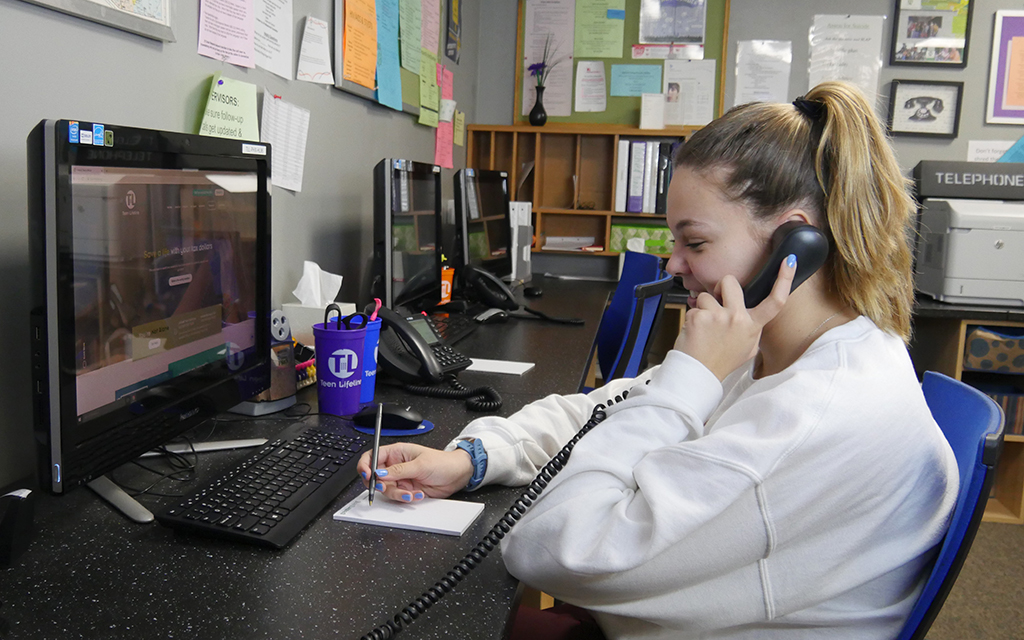
Teen Lifeline volunteer Dani talks on the phone with a teenager struggling with suicidal thoughts and lets them know they aren’t alone. (Photo courtesy of Teen Lifeline)
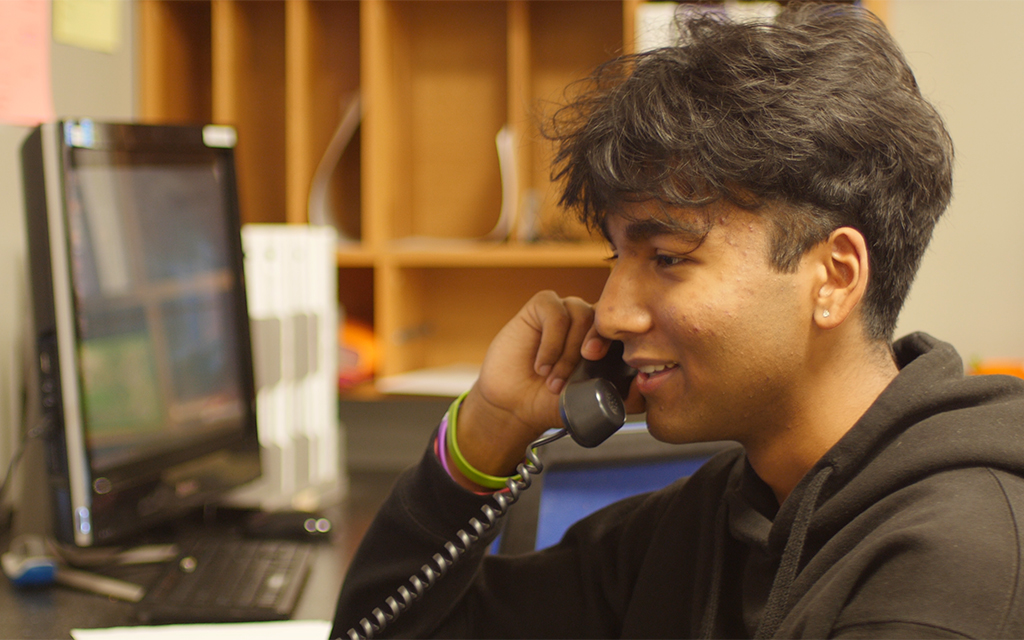
Soham, a Teen Lifeline volunteer, connects with a fellow teenager and provides words of encouragement. (Photo courtesy of Teen Lifeline)
PHOENIX — Teen Lifeline, a local nonprofit dedicated to preventing teen suicide, has introduced a local initiative with a goal of reducing repeated suicide attempts.
Modeled after the Caring Contacts program for adults, volunteer teen peer counselors will reach out to teens who have been discharged from the hospital following a suicide attempt with supportive phone calls, texts, handwritten notes and care packages.
Caring Contacts is an intervention program used throughout the U.S. where patients released from the hospital after a suicide attempt are sent brief expressions of care and concern from someone who has interacted with the patient. The support continues for about a year.
Jennifer Connor, Caring Contacts’ local intake specialist, said in an email that their own studies have have shown the program reduced suicide deaths and decreased future hospitalizations among adult participants.
“We believe this incredible program will have a similarly positive impact among Arizona’s teens because it reaches high-risk patients that do not stay in therapeutic care,” she said.
Connor said the youth initiative is based on the belief that teens are generally more willing to confide in their peers.
“It really focuses on the connectedness and having that peer connection,” she said. “They are able to relate to our peer volunteers since they are the same age. Overall, anyone reaching out for help is very brave and they’re encouraged to reach out.”
Teen Lifeline expects to help more than 600 teens in Maricopa County during the yearlong program underwritten by Mercy Care, the not-for-profit health plan that offers care for children, adults and seniors eligible for benefits from the Arizona Health Care Cost Containment System. The program started in January.
All 83 trained volunteer peer counselors are allowed to reach out to participants in Caring Contacts, Connor said.
For youth patients, participation is optional. Parents receive a form to fill out in the hospital before their teenage child is discharged, Connor said. They can opt in to Caring Contacts by completing the form and returning it to their nurse prior to the teen’s hospital discharge. The hospital then provides the patient’s contact information to Teen Lifeline
Peer volunteers do not receive details about the suicide attempt. Connor said the volunteers reach out to patients within 24 to 48 hours of their discharge from the hospital to reduce feelings of isolation, increase connectedness and provide resources.
In Maricopa County, Aurora Behavioral Health, Banner Health and Southwest Behavioral and Health Services have signed up to refer teen patients to Caring Contacts. Connor said she expects additional hospitals and behavioral health services to participate in the future.
Dani, a junior studying social work at Arizona State University, started volunteering as a peer counselor during her senior year in high school after she lost a friend to suicide. Dani’s last name has been withheld to protect her anonymity as a peer counselor.
“I didn’t know what to do or how to help,” she said. “I decided if I started volunteering (at Teen Lifeline) I could learn what to do and how to be more helpful in the situation.”
Teen Lifeline volunteer peer counselors are between 15 and 18 years old. All must undergo a minimum of 72 hours of training where they learn how to communicate and how to be an effective listener before they start taking texts and calls.
“After volunteering, I learned that one of the biggest things that you can do is to just be a listening ear and a person that they know they can turn to who will just listen,” Dani said, adding that her training has helped her treat everyone with no judgment and to be there for them, whether it’s in her personal life or on the hotline.
Teen Lifeline started in 1986 as a hotline for teens considering suicide, and volunteers have answered more than 315,000 calls and texts since its beginning. In 2022, volunteer peer counselors answered more than 43,000 calls and texts from teenagers struggling with ideas of suicide. It has expanded to offer life skills training for volunteer and prevention education in schools.
The demand for services like Teen Lifeline is increasing. The organization received a 50% increase in annual calls and texts since the beginning of the COVID-19 pandemic in 2020.
In 2020, suicide was the second leading cause of death for Arizonans ages 10-24, according to the U.S. Centers for Disease Control and Prevention. The Arizona Department of Health Services reported 694 deaths among 0-24 year olds from 2020 to 2023.
In 2020, suicide was the 10th leading overall cause of death in Arizona, with 1,363 certified deaths attributed to suicide for all ages. Arizona’s rate of suicide per 100,000 of population was 35% higher than that of the U.S.
Arizona youths dealing with thoughts of suicide, depression, trouble at school, fights with a significant other, family issues or who just need to talk, can call the Teen Lifeline hotline at 602-248-8336 (TEEN) or 800-248-8336.
Peer counselors ages 15 to 18 answer the hotline from 3 to 9 p.m. daily, including holidays. Adult counselors take over the rest of the time 24 hours a day, seven days a week. Teens can text the hotline from noon to 9 p.m. weekdays and 3 to 9 p.m. weekends.
For additional help, dial 988 for the Suicide & Crisis Lifeline, the National Suicide Prevention Lifeline at 800-273-8255 (TALK) or the local Crisis Response Network at 602-222-9444.
